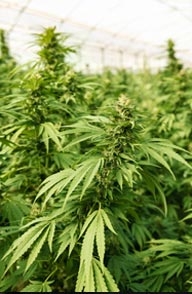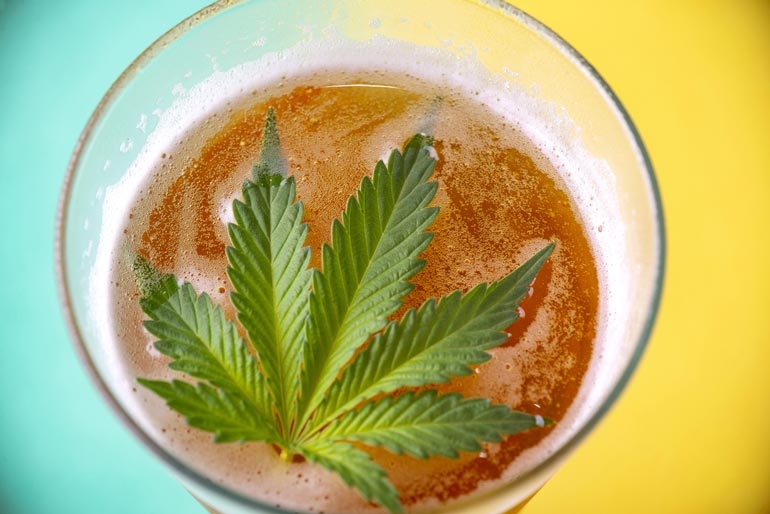Start 14-Day Trial Subscription
*No credit card required

Beer Vs CBG: Is Cannabis Replacing Beer?
Discover the differences and benefits of beer and CBG (cannabigerol) in this informative guide. Learn how CBG, a non-intoxicating cannabis compound, might be a healthier alternative to traditional beer for relaxation and health benefits.
The age-old enjoyment of beer at social gatherings has long been a staple in cultures worldwide. Known for its relaxing effects, beer is an alcoholic beverage produced by fermenting grains such as barley and hops. Recently, however, there's been a rising interest in CBG (cannabigerol), a chemical compound extracted from the cannabis plant, which offers a different kind of relaxation—one without intoxication. In this post, we explore whether cannabis, specifically CBG, is becoming a popular alternative to beer.
What is CBG?
CBG is one of the many cannabinoids found in cannabis plants. Often referred to as the "mother" or "stem cell" cannabinoid, it is the precursor to other cannabinoids like CBD (cannabidiol) and THC (tetrahydrocannabinol). As the cannabis plant matures, enzymes convert CBG into these other cannabinoids, which means CBG is typically found in lower concentrations.
CBG is celebrated for its potential health benefits, including antioxidant, anti-inflammatory, and neuroprotective properties. It's being studied for its efficacy in treating pain, anxiety, depression, and neurological disorders. Despite its promising benefits, CBG products, such as CBG Oil are relatively rare and should be purchased from trusted sources, such as Colorado Botanicals, to ensure quality and safety.
Benefits and Uses of CBG
Research highlights several health benefits of CBG, which include:
Anti-Inflammatory
CBG exhibits significant anti-inflammatory properties, potentially reducing inflammation linked to conditions like arthritis, Crohn's disease, and even cancer. Many users have reported relief from inflammation after using CBG products.
Pain Relief
CBG's pain-relieving properties make it a promising option for treating chronic pain conditions, including neuropathic pain and pain associated with cancer or fibromyalgia. Its ability to alleviate pain without intoxicating effects makes it particularly appealing.
Neuroprotective Effects
CBG may help protect brain cells from damage, offering potential benefits for conditions like Huntington's disease, which involves the breakdown of nerve cells in the brain. CBG has shown positive effects on cell viability in studies.
Anxiety and Depression Relief
CBG might also help reduce anxiety and improve mood by interacting with brain receptors. This potential has led many people to consider CBG as a natural alternative to traditional anxiety and depression medications.
Comparing the Effects of Beer and CBG Products
Beer
As a depressant, alcohol slows down the brain and body's functions, leading to effects such as:
- Relaxation
- Impairment
- Slurred speech
- Drowsiness
- Nausea (if consumed in excess)
The intensity of these effects varies depending on the individual's tolerance and the amount consumed. Excessive beer consumption can lead to drunkenness, hangovers, and long-term health problems.
CBG
Unlike beer, CBG does not contain alcohol or any intoxicating substances. Instead, CBG offers potential health benefits, including:
- Reducing inflammation
- Relieving pain and muscle soreness
- Lowering anxiety and stress levels
- Improving sleep quality
- Increasing appetite
While beer can offer a temporary sense of relaxation, excessive consumption poses health risks. CBG, on the other hand, appears to provide multiple benefits without causing intoxication or impairment. However, since CBG products are relatively new, their long-term effects are not yet fully understood. It is essential to consult a doctor before incorporating CBG into your routine.
Chemical Composition: Beer vs. CBG
Beer is made from water, grains like barley, hops, and yeast. During brewing, the grains' starches convert into sugars, which yeast then ferments into alcohol and carbon dioxide. The hops contribute bitter acids that provide distinct flavors and aromas.
CBG, a natural compound found in cannabis plants, is non-intoxicating. The primary difference in chemical composition between beer and CBG is that beer contains alcohol and compounds from hops, while CBG is a cannabinoid. However, both beer and cannabis contain terpenes, aromatic compounds that give them their unique smells and flavors.
Legal Status
In the United States, the Alcohol and Tobacco Tax and Trade Bureau (TTB) regulates the beer industry, overseeing labeling, advertising, and taxation. Beer is legal for adults aged 21 and older.
A Hemp-derived CBG product with less than 0.3% THC are legal under the 2018 Farm Bill, but individual states may have additional regulations governing their production, sale, and possession.
Summary
Beer and CBG come from entirely different sources—beer from grains and CBG from cannabis plants. The main distinction lies in their effects: beer contains alcohol, which can cause intoxication, while CBG is a non-psychoactive compound offering potential health benefits.
As both beer and cannabis products grow in popularity, understanding their differences becomes increasingly important. While many enjoy beer for its social and relaxing qualities, others might explore CBG for its medicinal benefits. If you're considering CBG, ensure the products you buy are safe and free from harmful chemicals by purchasing from reputable sources like Colorado Botanicals, where all products are third-party lab-tested and safe for consumption.



